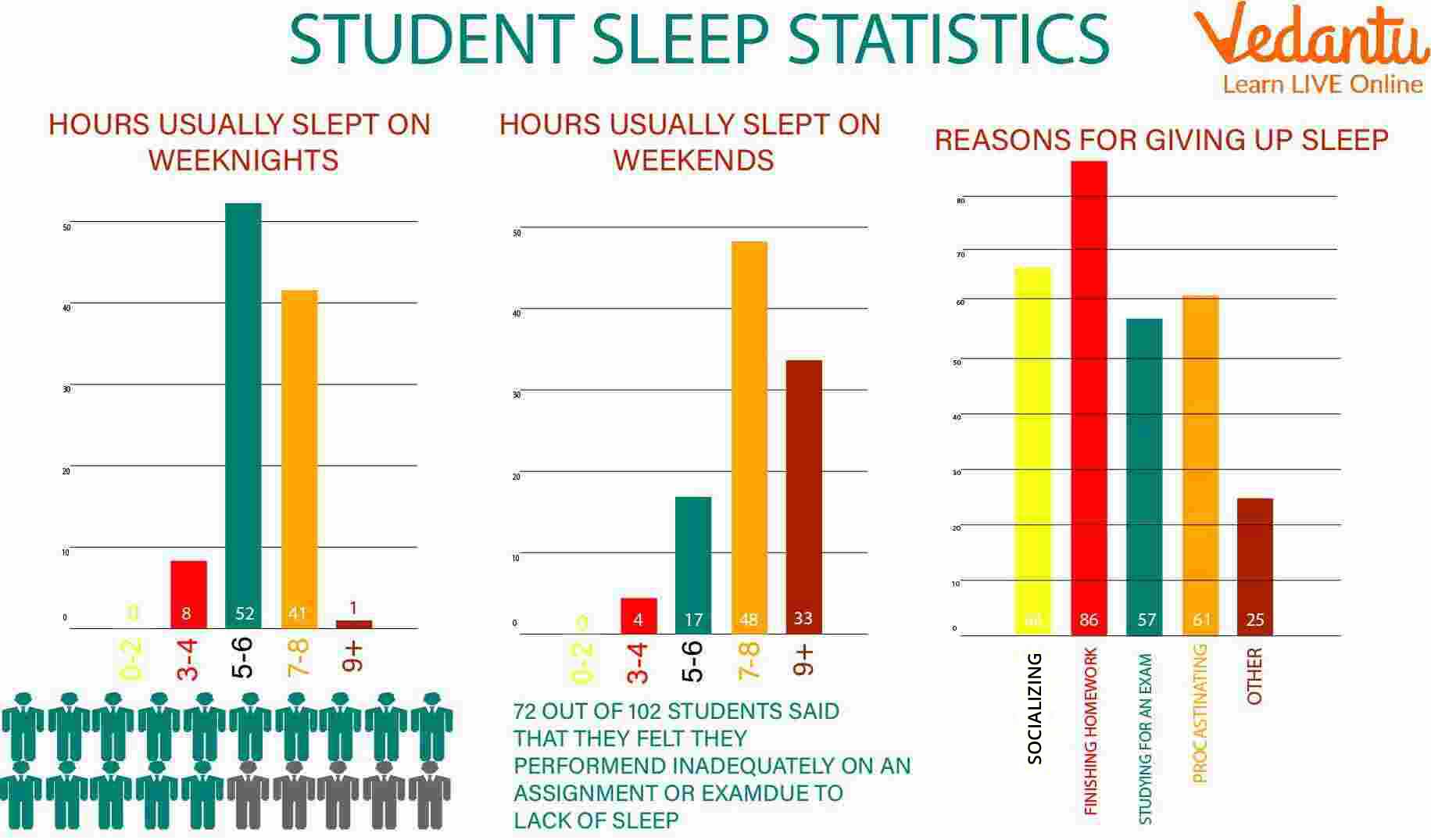Why Sleep is Important for Students: How Quality Sleep Boosts Learning and Performance
It’s no secret that sleep is crucial for overall health, but why sleep is important for students is often overlooked in academic life. Between performing homework, extracurricular activities, social engagements, and family responsibilities, many students find themselves sacrificing precious hours of rest. However, research shows that the importance of sleep for students extends far beyond simply feeling rested—adequate rest is directly linked to emotional stability, cognitive function, and consistent academic success.
In this blog, we’ll take an in-depth look at the benefits of getting enough sleep for students, why is sleep so important for students at every educational level, how does sleep affects academic performance, and how more sleep helps students excel in school and beyond.
The Importance of Sleep for Students
When discussing the importance of sleep for students, it’s helpful to consider how a good night’s rest underpins multiple aspects of scholastic success. For example:
Cognitive Sharpness
Sleep-deprived students often struggle with concentration, forgetting key instructions or classroom discussions.
Adequate sleep boosts attention span and helps students grasp complex ideas more quickly.
Emotional Stability
Consistent rest strengthens emotional regulation, reducing stress and mood swings.
Students who sleep well are generally more patient and better equipped to handle conflicts or group projects.
Reduced Absenteeism
Insufficient sleep can weaken the immune system, leading to more frequent illnesses and missed class days.
Well-rested students typically stay healthier, maintaining consistent attendance.
Benefits of Getting Enough Sleep for Students
The benefits of getting enough sleep for students are vast and impacting everything from test scores to overall mental health. Let’s break down a few key advantages:
a) Improved Memory Retention: During sleep—particularly deep sleep—your brain consolidates and processes information learned throughout the day. This consolidation is crucial for transferring data from short-term to long-term memory. Students who get enough sleep recall details and concepts more effectively, which is especially important during exam periods.
b) Enhanced Creativity and Problem-Solving: Good sleep not only helps with retaining facts and figures but also fosters creative thinking. Students with adequate rest often find innovative solutions to problems and perform better on tasks that require brainstorming, critical analysis, or out-of-the-box reasoning.
c) Stable Energy Levels: Pulling all-nighters or consistently sleeping less than the recommended hours can lead to fatigue and reliance on caffeine or sugary snacks. By contrast, rested students have more natural energy, allowing them to stay focused longer without resorting to stimulants that disrupt sleep cycles further.
d) Emotional Well-Being: Sleep greatly influences mood and stress levels. Students who are well-rested are less prone to anxiety or emotional breakdowns. This stability helps them maintain healthy relationships with classmates, teachers, and family members.

Statistics of Lack of Sleep
How Much Sleep is Necessary for a Student?
Now that we know the importance of sleep in a student’s life, let’s see how much a student should sleep.
The total amount of sleep for someone depends on that individual’s age. Kids and adults need more amount of sleep than elderly people. Research says that children in the age group 6 to 12 years must get at least nine to ten hours of sleep, and teenagers and young adults in the age group 13 to 50 years should sleep for at least eight to ten hours.
Often teenagers tend to stay up late with the help of drinking some coffee and studying for the whole night, as nights make an ideal study time with a quieter and peaceful environment. Well, it might as a great idea, but in reality, it’s not all a good plan for the long term.
Since the whole day is spent performing various activities, the brain remains super active with all the information received throughout the day. At night when you sleep, the body starts getting rid of all the garbages from the brain that is no longer required to be stored, thus, making it clean and ready for the next day. This is something similar to deleting unnecessary files and documents from our computers to make spaces for the important ones.
Effects of Less Sleep on a Student’s Life
Every student must take sleep seriously just like any other vital activity of their body. Inadequate sleep can cause severe harm to a student’s health. Here are some of the effects listed below as a result of a lesser amount of sleep:
Getting deprived of sleep can affect a student’s emotions badly. They can have a bad mood, which may further make them short-tempered. This might lead to severe anxiety or depression issues.
Extreme sleep inadequacy can have an effect on a student’s memory. Since the brain develops connections while a student sleeps, thus, helping them to process and recall new information, this whole process can be affected due to less sleep resulting in short and in many cases long-term memory loss.
Insufficient sleep does not let think or concentrate properly, and hence decreases the skill of solving problems in students.
When you get less sleep at night, you feel drowsy the next day. This may increase the risk of getting injured and facing accidents.
Sleeping less than five hours a night increases the tendency of high blood pressure in a student at a very early age.
Sleep deprivation may weaken a student’s immune system, thus, making their body much more prone to external germs and diseases and falling sick.
Every student should maintain fitness to remain healthy. If they do not get proper sleep at night on a continuous basis, this might result in gaining gain and becoming prone to obesity.
Less sleep also increases the risk of heart-related diseases easily.

Benefits of Sleep
Tips for Achieving Better Sleep
Encourage going to bed and waking up at the same time daily, including weekends when possible.
This routine regulates the body’s internal clock, making it easier to fall asleep and wake up naturally.
The blue light from smartphones, tablets, and computers can suppress melatonin, delaying sleep onset.
Aim to switch off devices 30–60 minutes before bedtime or use night-mode settings if absolutely necessary.
Consuming caffeine or sugary snacks in the evening can keep the brain active long after bedtime.
Opt for a light snack or herbal tea to encourage relaxation.
Activities like reading, journaling, or gentle stretching calm the mind.
Maintaining a peaceful routine before bed signals the body it’s time to rest.
What is the Best Time to Sleep for a Student?
Students getting a good night's sleep are always welcomed by a fresh new morning to start their day actively. Keeping awake for late hours at night to study or doing some other work cannot be healthy if continued for a prolonged time period. According to some studies, the ideal time to be in bed is by 9.30 pm so that by 10 pm the individual can be in deep sleep.
This is because the biological clock of the body adjusts itself with the sun and makes you feel sleepy after sunset naturally. To make this happen every student must make a habit of finishing up dinner by 9 pm every night. A small walk after dinner would help in the digestion of your food and then enhance sleep. Students may also read some bedtime stories that would help in sleeping.
Conclusion
In short, it could be summarised that students must have a deep and adequate amount of sleep every night to start the next day with full energy and activeness. Good sleep will help their brain function properly, keep them energised, and have a lesser risk of external diseases. It will also help them excel in their academics and reach their goal smoothly.
FAQs on Why Sleep is Important for Students?
1. What is the ideal amount of sleep for a high school student?
Most experts recommend around 8–10 hours of sleep per night for teenagers to maintain optimal academic and physical health.
2. How can busy college students fit enough sleep into their schedules?
Effective time management is key. Prioritizing tasks, using to-do lists, and avoiding procrastination can free up evening hours to ensure 7–9 hours of rest.
3. Can students “catch up” on sleep during weekends?
While sleeping in on weekends offers temporary relief, it doesn’t fully reverse the cumulative effects of chronic sleep debt. Consistency is more beneficial long-term.
4. How does sleep affect academic performance directly?
Lack of sleep compromises attention span, memory retention, and decision-making skills. Adequate sleep directly correlates with better grades and test scores.
5. What if a student still struggles with sleep despite following all these tips?
They may have an underlying sleep disorder or elevated stress levels. Consulting a healthcare professional (e.g., counselor, pediatrician, or sleep specialist) can provide personalised interventions.
6. Are naps useful if I miss some sleep at night?
Short naps (around 20 minutes) can boost alertness. However, sleeping too long in the afternoon can disrupt nighttime rest. If you need a nap, keep it brief and avoid late afternoon naps.
7. How does more sleep help students?
More sleep helps students by enhancing memory retention, improving mood, and increasing their ability to handle stress. It also helps in better decision-making and creativity, which are important for learning and problem-solving.
8. What is the importance of sleep for students?
Sleep is important for students as it helps them focus better, retain information, and perform well in academics. It also strengthens the immune system, reduces stress, and improves mood.
9. What are the benefits of getting enough sleep for students?
The key benefits of getting enough sleep for students include:
Better concentration and focus in class
Improved memory and learning ability
Higher energy levels throughout the day
Stronger immune system to prevent illnesses
Reduced stress and anxiety
10. Why is sleep so important for students?
Sleep is important for students because it helps their brains process information, improves problem-solving skills, and boosts creativity. Lack of sleep can lead to poor academic performance, difficulty concentrating, and increased stress.
11. How does sleep affect academic performance?
Sleep directly impacts academic performance by improving focus, comprehension, and problem-solving skills. Students who get enough sleep perform better on tests, complete assignments more efficiently, and have better classroom participation.







